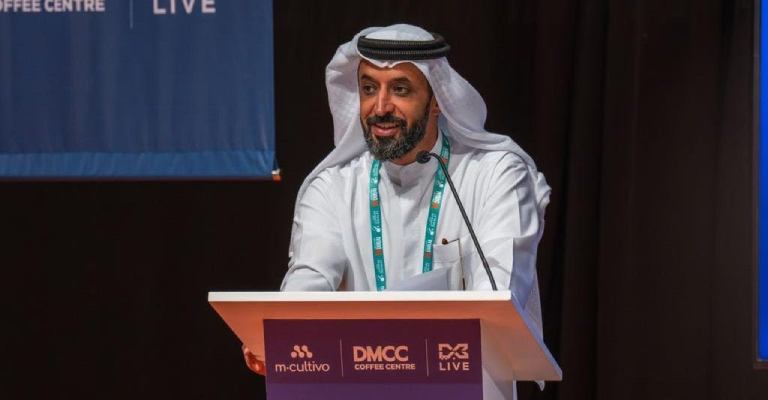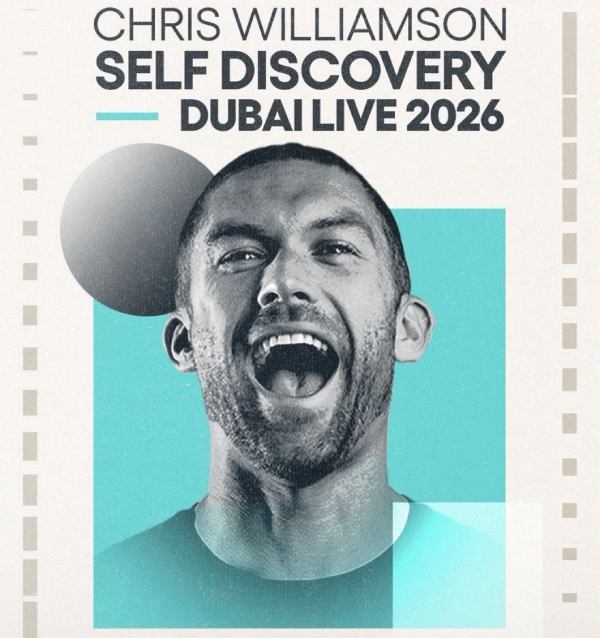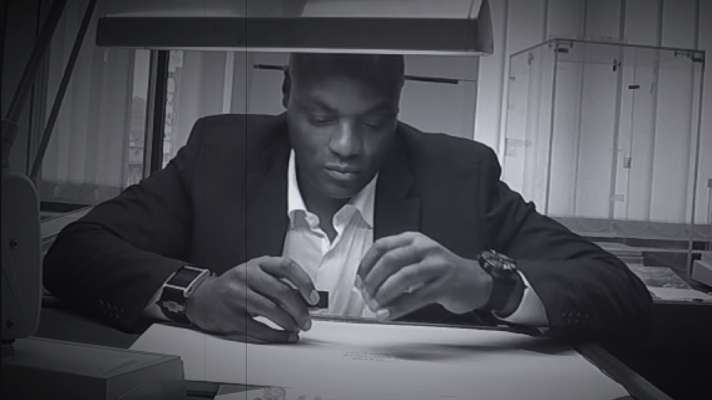
Can Africa become ‘The Emerging Power’ in the global diamond industry?
September 23, 2025
Zeenat Aman headlines Tyaani Jewellery’s ‘Forces of Tyaani’ Campaign
September 24, 2025Ahmed Bin Sulayem, Executive Chairman & CEO

Ahmed Bin Sulayem, Executive Chairman & CEO
Dear Chris,
Having recently listened to your podcast with Dr. Mike Israetel, I felt compelled to offer a rebuttal to your claims that “Dubai is one of the most awful places on the planet,” and a city of “shallowness” with “very little soul”; claims which your guest was gracious enough to avoid engaging with, and perhaps one of the reasons he won’t be returning to your show. While I’m sure your commentary was meant as hyperbole, two points struck me.
Firstly, as someone who is usually meticulous in their preparation, and nuanced in their approach, your commentary seemed either lobbied, poorly informed or commercially motivated. At the very least I thought someone had produced an AI of you saying something, which is clearly not in your usual style. Having established that it was you, it is unclear what metrics you’re using to summarise what makes Dubai “one of the most awful places on the planet”. Not so awful that you’re returning for your Self Discovery Dubai Live 2026 event, which, assuming you stand by your position, questions the integrity of your own soul, but perhaps worse, shows an arrogance that you feel you can insult a city like Dubai and expect it to go unnoticed. I appreciate your criticism is fully subjective, however several of your points are rooted in falsehoods, particularly when benchmarked against other major centres around the globe.
As someone who travels extensively, it is now common knowledge not to wear an expensive watch or jewellery when visiting London or Paris based on their rampant crime statistics and ineffective policing. In the case of London, this includes 16,344 knife crimes in 12 months, and in the broader UK, an increase in rape cases by 70 per cent in the past two years. In the United States, where you are a resident, the brutal murder of Iryna Zarutska, which occurred without any intervention from surrounding members of the public or law enforcement on a Charlotte train, or the assassination of free-speech advocate, Charlie Kirk on a college campus, hold up as compelling evidence of a nation in social decline. That being said, even against such dystopian disorder, it would still be unfair to write off any of these nations as “one of the most awful places”. Perhaps by way of direct comparison, it might also put some of your claims about Dubai in perspective.
Secondly, it is clear that you’ve not had the opportunity to experience what Dubai is, or truly has to offer. As a successful podcaster your appeal isn’t just based on your guests, but how you develop and shape discussion. Subsequently, your dismissive comments about Dubai felt out of cadence with your typical approach. As such, I’d like to respond to some of the points raised on your podcast, and offer you the opportunity to experience Dubai prior to your tour dates next year.
Perhaps unknown to many, Dubai’s history is rooted in trade. Far from today’s perceived glitz and glamour, the emirate’s origins trace back to being a pearling and fishing post on the Silk Road. Over time, its operations expanded to become a strategic meeting point between East and West. Driven by organisations such as DP World and DMCC, Dubai’s foundational success is, without a doubt, built on human connectivity and commerce, the very soul and ambition that founded other global centres including New York, Singapore and London. Unlike these centres, Dubai is only 54 years old, meaning that while it still has time to develop and own its identity, its runaway success is a clear indicator that it has got certain things right – a point evident from its record-breaking tourism figures and residency applications.
In the first six months of 2025, Dubai welcomed 9.88 million visitors, a year-on-year increase of six per cent, while the population grew by 169,000 in 2024, the fastest increase since 2018. Far from taking a “Dubai break” it begs the question why the global community continues to either visit or seek residency in increasing numbers.
Unlike many countries, Dubai’s multicultural success is underpinned by shared interests and values. Regardless of nationality or creed, visitors and residents have an expectation for safety, comfort, and choice. Conversely, no one arrives expecting a handout or assumes the rules don’t apply to them. As a result, Dubai has garnered a society that adheres to the social contract of being respectful to the nation’s values, its rule of law, and a tolerance for those within it. In return, the emirate’s ruler, His Highness Sheikh Mohammed Bin Rashid Al Maktoum, has gone to great efforts to ensure that all nationalities and cultures feel welcome. This includes the construction of churches, synagogues, and temples alongside mosques through to the operation of licenced bars, restaurants, clubs and music festivals. As an outcome, all citizens live and work in harmony with the liberty to pursue their own interests without fear of persecution or intimidation. It is for this reason, along with the UAE’s favourable real estate and tax policies that the UK alone has seen 10,400 millionaires leave for Dubai in 2024, and a further 16,500 expected to arrive in 2025.
Aside from the city’s cultural offerings, which include a world-class opera house, museums and art districts, Dubai’s expatriate community includes more than 200 nationalities that not only live without conflict and violence, but in peace and harmony. Regardless of religion or political leanings, the commonality of leaving prejudice at the door in substitution for debate, reason, nuance and understanding is another part of Dubai’s unspoken social contract. For those of us either born or living here, it is the very essence of a working, globalised society. When we see headlines from the UK, Europe and the United States about the failure of multiculturalism, with reports of segregation and social strife, Dubai stands as a melting pot that has not boiled over, but instead, has produced a cohesive and dynamic society.
Another point raised on your podcast was, “if there’s one place on the planet you don’t want to do drugs, it’s Dubai.” Far from being a criticism, this is a point of immense pride. Dubai’s stringent laws and zero-tolerance approach to illicit substances are a cornerstone of its appeal. This is not a punitive system, but a foundational pillar of its commitment to public safety. As a result, Dubai has a society where families feel secure, children can play in parks at night, and where order and civility are paramount. This stability is not a byproduct of prosperity, but a prerequisite for it. When we hear of cities in the West struggling with rampant crime and social disorder, we see a cautionary tale. Dubai has chosen a different path, one of discipline, safety, and a clear set of values that many in the world are now searching for. This in itself is an illustration of character, and an act of care and duty for the people who call it home.
Perhaps the most persistent, and frankly outdated of your critiques is the assertion that Dubai was “built on the back of slave labour.” Let me be clear – not a single foundation of Dubai was built on slave labour, nor has the practice of slavery been legal or illegally tolerated since the UAE’s formation. The UAE is, however, a beacon of opportunity for millions of expatriates who travelled here to build a better life for themselves and their families. The UAE’s leadership has been at the forefront of implementing progressive labour reforms, including wage protection systems and enhanced worker rights that stand as a model for the region. To call this modern, protected workforce “slave labour” is a disservice to the millions of individuals who have willingly chosen to make their careers here, earning a living that far surpasses what they could achieve in their home countries. It is also to completely write-off the hundreds of thousands, if not millions of children who were able to gain a higher standard of education and quality of life in their countries of origin, courtesy of their parents and or relatives’ hard work. This stands in stark contrast to the West’s widely documented struggles with illegal migration and exploitative labour practices, which continue to operate in the shadows with impunity.
Ultimately, the movement of people from “the free world” is one of personal choice. For those that want to visit or live in a society which can easily identify the difference between a man and a woman, where the safety of women and children is paramount, and where each individual is personally accountable for their behaviour and actions, then Dubai will not disappoint. For those who believe a laissez-faire attitude towards the rule of law, public safety, illicit drug activity, sexual assault and knife crime adds a little more “soul” to their culture, they’re welcome to keep it.

With your Self Discovery Dubai Live 2026 dates announced, I, along with my friend Kris Fade, would like to offer you the opportunity to visit our vibrant city first-hand, and experience it through the eyes of locals and residents. Through this lens, you will see what Dubai truly has to offer and gain a better understanding of the common threads that bind our communities together.


